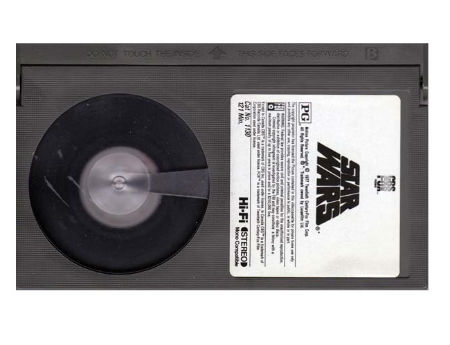Good-Bye, Betamax

The smarter way to stay on top of the multichannel video marketplace. Sign up below.
You are now subscribed
Your newsletter sign-up was successful
So, when I read the news that Sony is “finally killing its ancient Betamax format,” I was shocked. Wasn’t it dead already?
Almost dead, as it turns out. Sony’s about to toss the last heaps of sand on the Betamax grave, 40 years after the format was born.
As CNN and other media outlets reported, Sony will stop making Betamax tapes in March 2016, about 14 years after the company stopped producing Betamax players/recorders.
"This will make the final shipment of all our memory media for Betamax," Sony said a statement, posted here in Japanese.
So, let’s all shed a tear for the platform, which fought (and lost) its battle with the inferior VHS format, which later gave way to DVDs and, still later, Blu-ray (which, as a point on the Sony scoreboard, soundly defeated competing HD DVD format)...up to today and streaming/digital distribution.
But don't be too upset if you're still into Sony's old format. Betamax products still live on at eBay, where one can buy players for several price ranges, spanning $389 for a professionally refurbished Super Betamax (with remote and test tapes), a Sony Betamax Slo 323 Hi-Fi Stereo model for $50, or a Betamax device (for parts or repair only) for $28.95.
And there’s still some Betamax content to be had. On eBay, I spotted Night of the Juggler; A Name for Evil, Dawn of the Dead, and Wes Craven’s The Hills Have Eyes for $9.99 a pop. Return of the Jedi for $30, or a lot of five Disney titles for $29.99. Someone’s selling a box of 24 blank Betamax tapes for $10.
The smarter way to stay on top of the multichannel video marketplace. Sign up below.
And cable operators owe a debt of gratitude to Betamax, which, in some ways, paved the path to today’s network/cloud-based DVRs.
In the U.S., Cablevision Systems led the way with its “remote-storage” DVR (currently branded as the Multi-Room DVR and able to record up to 15 shows at one time), holding that its approach (customers must manually make their recording, and the system housed individual recorded copies) is protected by the 1984 Sony Betamax decision, which allowed consumers to make individual recordings under fair use and, therefore, weren't infringing copyrights.
So far, so good. In 2009, the U.S. Supreme Court declined to hear the RS-DVR case.
That has emboldened others to move forward. Comcast, for instance, has been expanding the deployment of its Cloud DVR, which lets X1 subs stream recordings in and out of the home, or download them to a mobile device for offline viewing. Hints have also emerged that Charter Communications, now helmed by Tom Rutledge, who championed the RS-DVR as COO of Cablevision, is developing a “remote” DVR.
Thank you, Betamax, and farewell. Your job is done. Rest in peace.
